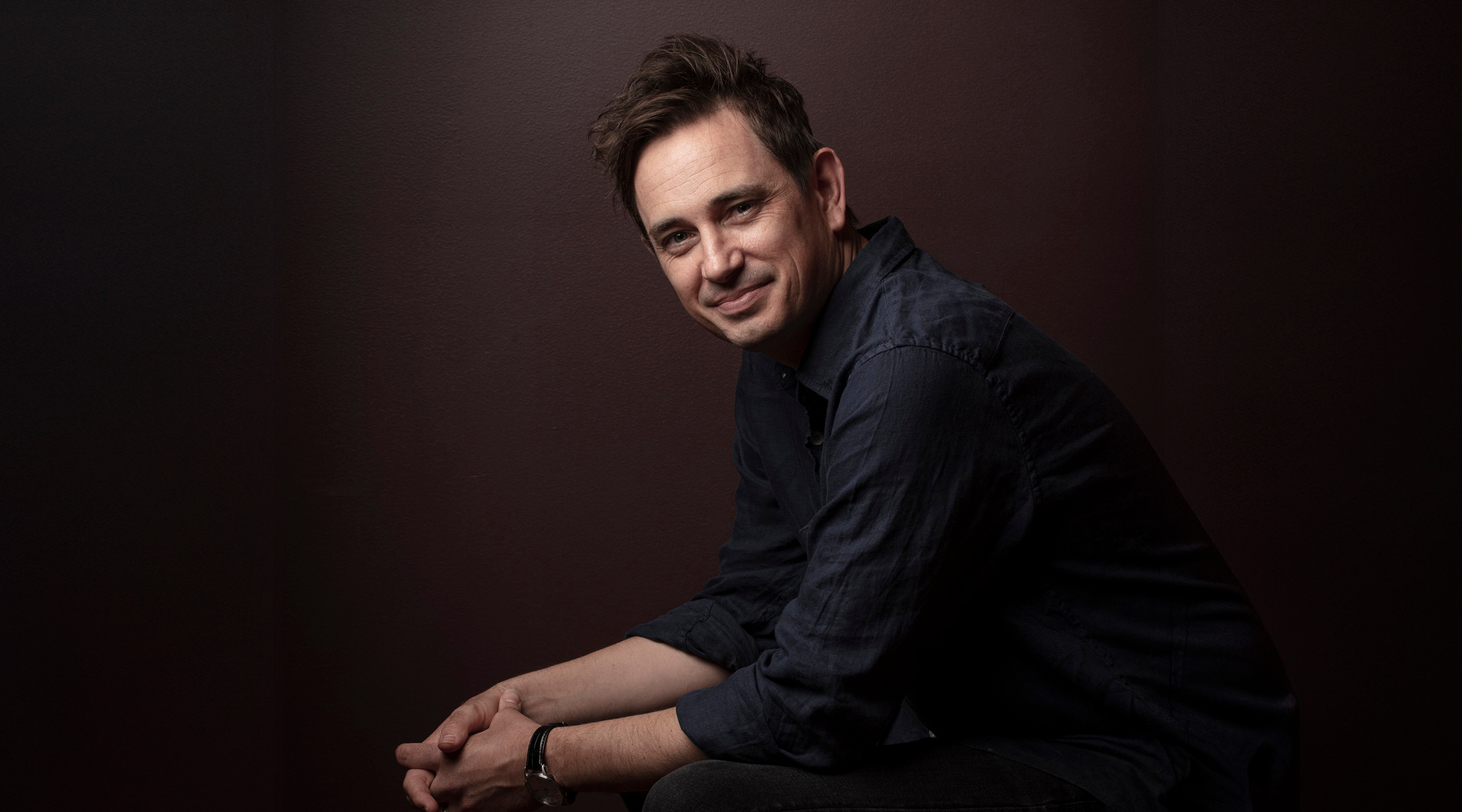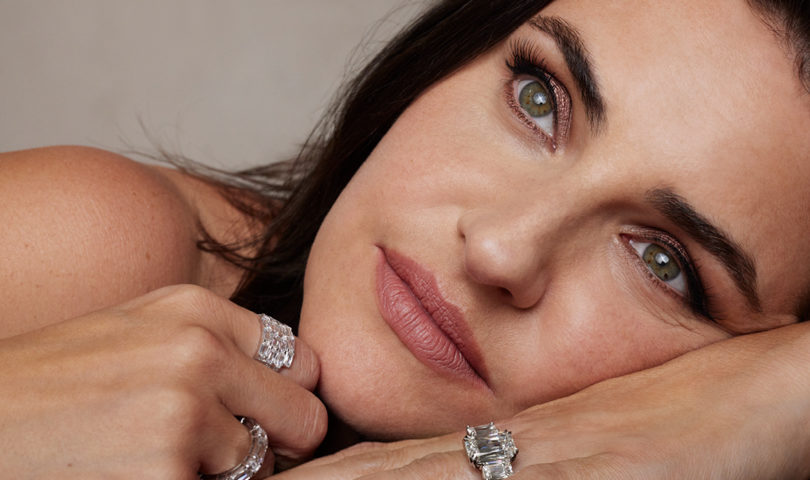Australian journalist-cum-author Trent Dalton revisits his childhood stories, characters and chaos in his award-winning novels. But as we discover, when catching up following his appearance at the Auckland Writers Festival, laying your life bare on the page is not without consequence—good, bad and beautiful.
When Trent Dalton calls me late one Friday afternoon, he’s quick to apologise for his tardiness. He meant to call half an hour earlier, but he and his wife Fiona are crawling along the motorway on their way home from a funeral and his phone has been playing up. I assure him it’s no trouble but ask if he would like to reschedule for a day when they hadn’t buried a friend or relative? “Oh, no way,” the author says cheerily. “It was a beautiful celebration for a truly selfless woman—the most life-affirming day.” As I’ll quickly realise, this ability to find light in the darkness is Trent Dalton’s modus operandi.
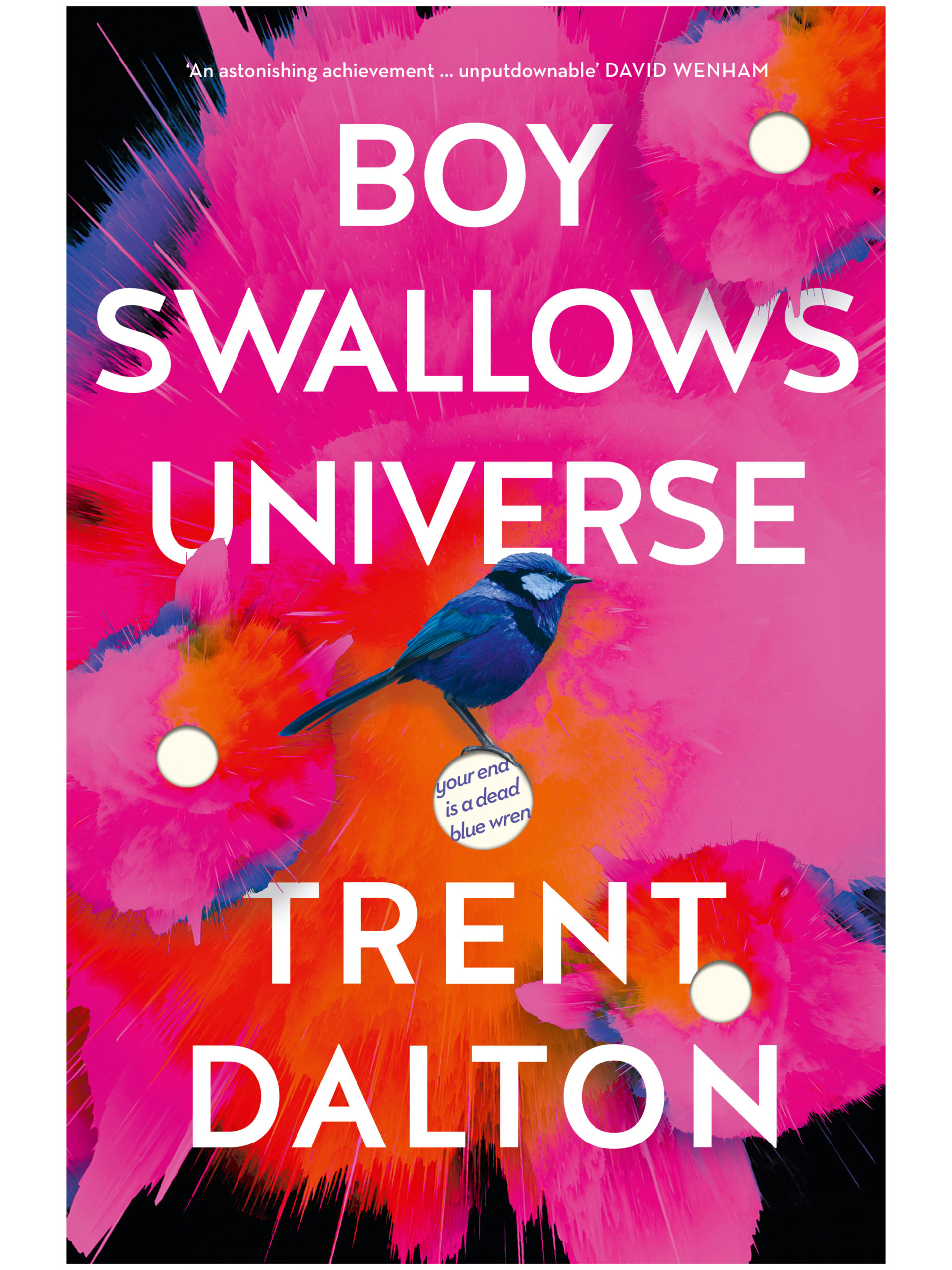
Dalton shot into the public consciousness with the success of his weighty coming-of-age novel Boy Swallows Universe [BSU]. The book is ‘autofiction’, loosely based on the author’s early life with his mum and three brothers in Darra, Queensland. It was an eighties childhood spent barefoot and broke, dealing with the day-to-day realities of drugs, drink and domestic violence. When Dalton was seven, his mum was jailed for heroin, and he shifted to live with his alcoholic dad in a housing estate in Bracken Ridge, Queensland. It was a change of scene but the same grim narrative—though Dalton doesn’t dwell on the despair. “Dad just loved us so much,” he remembers. “And if he could get through the night drinking and to the other side where he was sober, then he was magic.”
His writing, language, backdrops, and characters are quintessentially Aussie, but the stories resonate around the world. “I’m writing about issues that anyone, of any suburb, in any city can connect to,” he reasons. He’s had messages from women worldwide thanking him for telling “their story.” But by far, the most profound feedback came from a 15-year-old boy in South Korea. He wrote, “I have no idea where Darra, Brisbane, South Australia is, but I just wanted you to know that I’ve read Boy Swallows Universe, and because I did, I have decided to live to adulthood.” For Dalton, who has struggled with the ethics and impact of using his own life as literary fodder, the message was a very real, very human vindication.
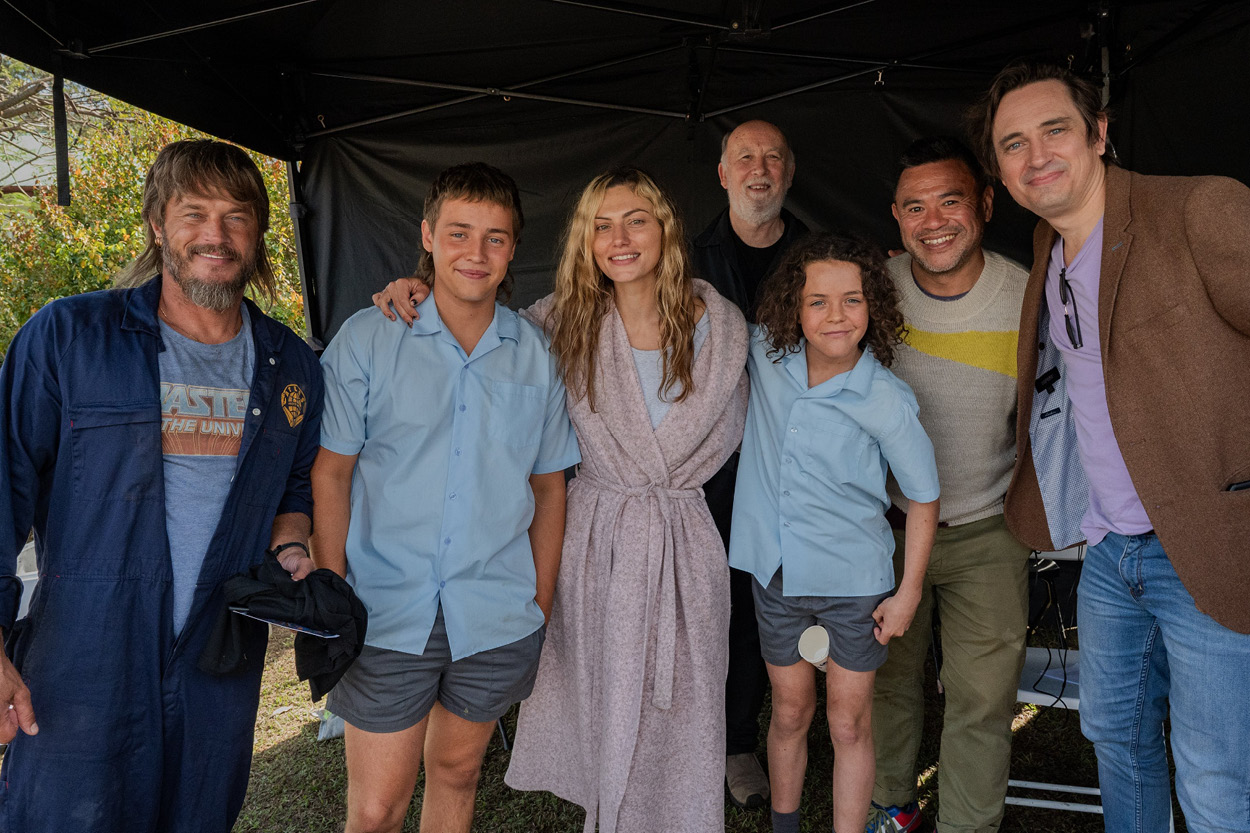
Earlier this year, Netflix adapted BSU into a seven-part miniseries. Like the book, it followed the traumatised protagonist, Eli Bell, navigating boyhood in a world unsuitable for children. Deftly weaving fact with fiction, it’s peppered with exaggerations of salty characters from Dalton’s past, like ‘Slim’ Halliday, the convicted murderer and family friend who managed multiple prison escapes, his [now reformed] drug-dealing stepfather, and his mum. Echoing real life, the fictional matriarch is jailed for drugs when Eli is just a boy, but the tale strays from reality when (spoiler) the young lad busts into the infamous Boggo Road jail to simply wish her a Merry Christmas. In real life, there was no such escapade, but “The book gave me a chance to do everything I wanted to as a kid,” Dalton has said.
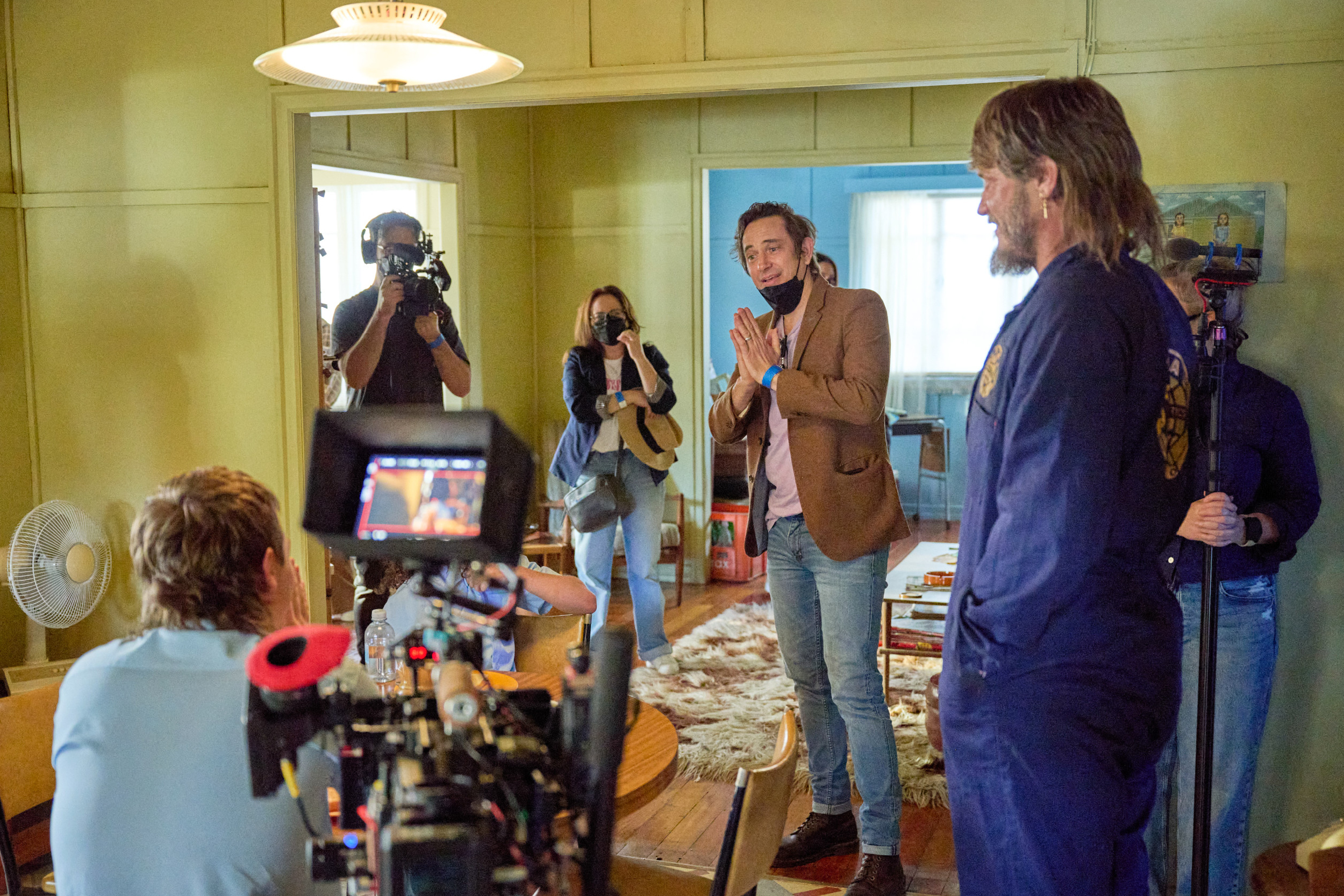
Mining his childhood for his novels imparts a rawness on his writing, but it can take its toll. When BSU was in pre-production, the art director had Dalton take her on a tour of Darra, his old homes, jail grounds and Bracken Ridge. When he got to set, it was as if he’d stepped back in time. They had recreated his childhood home with acute precision, from the wallpaper and kitchen to the amber-coloured ashtrays, the stubbie coolers and the Rugby League Week magazines strewn across the table. Looking around, he clocked Felix Cameron, the young actor who played the protagonist, looking like a bag of bones in his old school uniform—the spitting image of his 12-year-old self. “I just started crying,” remembers Dalton. “I went up to Felix and kept asking, ‘Are you ok? Are you ok?’ I don’t think I was talking to him, though; I dunno… I think subconsciously I was talking to myself.”
“It’s an ignorant point of view…that there’s no light for those born between the cracks… of course there is. It’s the light and love that keeps them going.”
It was the type of childhood that few claw their way out of. A perpetual cycle passed from parent to child, like eye colour or dimples, and it almost claimed him. At 15, Dalton was angry and “listening to too much Kurt Cobain,” which stripped off his adolescent blinders to the harsh reality surrounding him. “I was almost destroyed by the sorrow,” he remembers. “When I looked in the mirror, I started seeing the same drunkenness and violence that was happening outside my door.” He was teetering on the edge when everything changed. How? “I met a girl.”
Dalton met Fiona when he was just 20 years old. “She gave me hope and showed me there was so much more in life,” he says. He began forging a career in journalism, spurred on by an eloquent English teacher who told him to “Stop being a shithead, quit hiding beneath the bravado and remember that you can string a few sentences together.” First came a role at Brisbane News and then The Courier Mail, working his way up from human interest pieces to feature writing and, finally, the excitement of the crime desk. Though the job never paid well—”it’s a shitkicker role”—Dalton still feeds those journalistic roots. “I hope I never stop,” he says. “It’s the only thing I was ever good at. It’s my trade.”
In many ways, it was his unique childhood that gave Dalton’s reporting an edge; that insider view of Queensland crime, police corruption, violence, dealers and drugs that led him to tell the stories of the disenfranchised. His first book, Detours: Stories from the Street, was a non-fiction work that explored the lives of 20 Queenslanders living rough. One of the women—who would go on to inspire Roslyn in his new novel, Lola in the Mirror—had been on the street for two decades and lost all of her teeth to a sugar addiction. After reading the story, she confronted Dalton, angry that he’d only covered the “dark stuff,” omitting the romance, friendships and family she’d found there.

“Anything I write now is about not judging these people too quickly,” he says. He challenges stereotypes to show how people are multidimensional, never just ‘addicts’ or ‘homeless’ or ‘runaways’, writing about intensely dark themes with an unexpected lightness. It’s a rich dichotomy that has garnered praise and criticism, with some accusing Dalton of being overly optimistic or romanticising the issues. But the author brushes it off. “It’s an ignorant point of view where people assume that there’s no light for those born between the cracks, but of course there is. It’s the light and love that keeps them going. I’ve seen it; I’ve lived it. My mum was nearly killed by her monster who strangled her and left her for dead in the bottom of a Telstra phone box, but it was the light that kept her alive.”
Following that near-fatal assault, the police gave his mum two options: Be homeless or go back to the monster—and they strongly recommended the latter, simply suggesting she ‘not agitate him.’ Ultimately, it was Brisbane’s domestic violence shelters that scooped her up, finding her a rental property, furnishing it and giving her a chance to get her boys back. She’s now retired and “the proudest Mum in Australia,” according to Dalton, and he’s paying it forward by supporting similar charities and shelters through his work, even fundraising for the Wellington City Mission when he visits Aotearoa. “When I write about those mums in my books,” he says with audible fondness. “There’s no doubt about it; I’m writing about my mum.”
Dalton and Fiona have two teenage daughters, so I’m curious how that turbulent past has shaped his parenting? “I’ll give you the honest answer: I think it’s made me too soft,” he admits. The big refrain in BSU is ‘it gets good’, and Dalton seems to channel that, but he’s possibly over corrected, easing their paths with the shelter, security and over-the-top Christmases he never had. The author is working on it—helped by his teens constantly calling him out—but I’m not convinced of the follow-through. He simply cares too much. Dalton is a romantic, a man who finds hope in a housing estate and classifies his abuse-riddled novels as ‘love stories’.
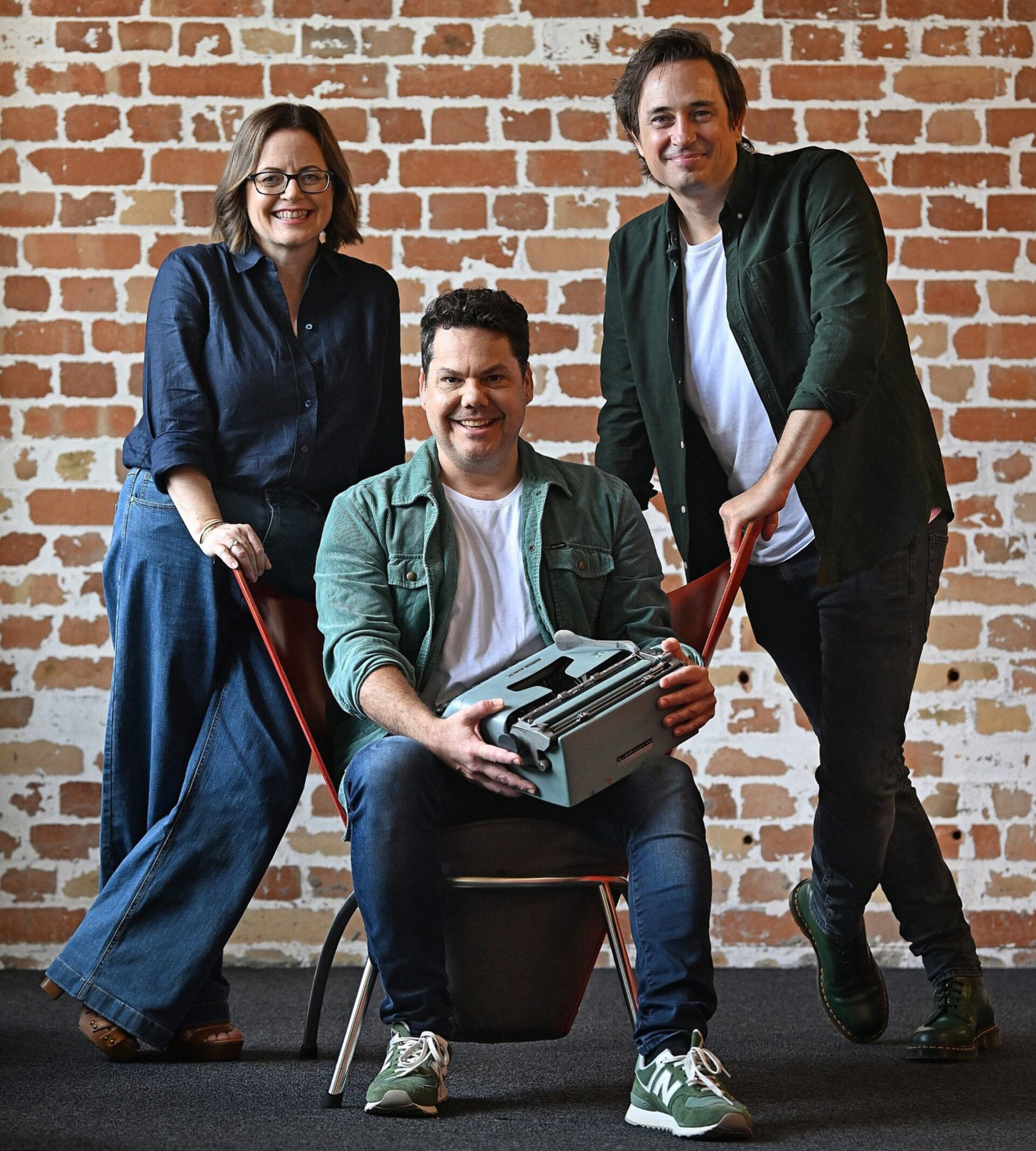
In that respect, his next project is wholly on-brand. He and Fiona are working on a stage adaptation of his book, Love Stories, an assortment of real-life romantic tales collected from the people of Brisbane. He’s also just started his new novel. “The first three fiction books I wrote, I was writing to that boy I was, I have a great fondness for him,” says Dalton. “But the man I am now is highly complex, and this one is all I know about being an adult.” He stops and thinks. “I’m really excited. It’s begun.”

